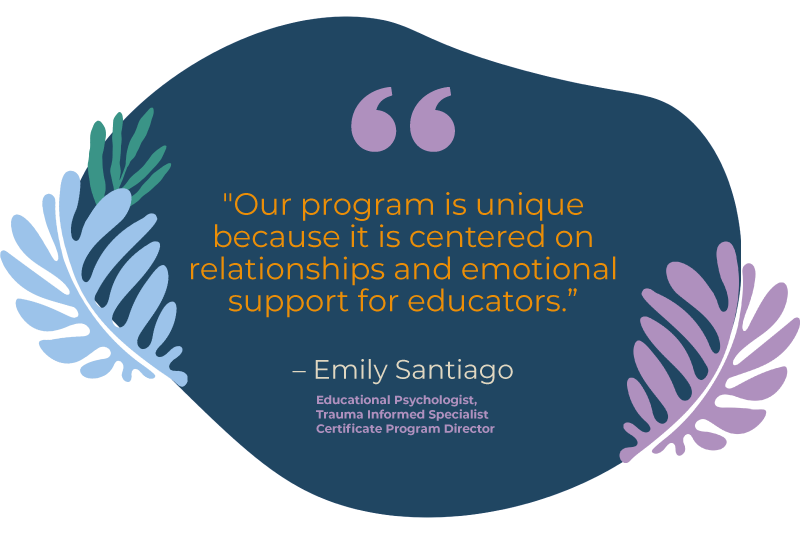Responding to The Needs of Students with Trauma: New CSUEB Program Addresses Trauma In Classrooms
BY ELIAS BARBOZA

According to the American Psychological Association, trauma is an emotional response to a terrible event. Longer term reactions include unpredictable emotions, flashbacks, strained relationships and physical symptoms like headaches or nausea. While these feelings are normal to a traumatic event, some people have difficulty moving on with their lives.
These types of struggles are regularly faced in classrooms, and educators should be equipped with the tools to respond to them in a sustainable and effective way, said Licensed Educational Psychologist Emily Santiago. Luckily, she said, Cal State East Bay’s new Trauma Informed Specialist Certificate Program will train leaders to address these issues, while pushing for agency, connection and empowerment.
“When our schools do not have leaders who have a deep understanding of trauma informed practices, they can become places that retraumatize those most impacted,” said Santiago, who is an instructor in the program and its director. “The Trauma Informed Specialist Program is designed to promote connection, compassion and effective change.”
Santiago, who has worked in education for more than 25 years as a classroom teacher, school psychologist and university instructor, says she’s seen the way trauma has impacted herself, her students and colleagues. Before bringing the program to CSUEB, she and her team spent five years piloting it across the United States. Several hundred educators, from kindergarten to high school, took part in helping to create the program, which is applicable to all professionals working in schools.
The 10 month certificate program is held fully online, once a month, and ends with a capstone project focusing on the strengths and needs of each student’s community. It’s designed for educators, administrators and mental health professionals who want to create learning environments that heal and empower, said Santiago. Each student cohort works together to build awareness of the impact of trauma on themselves and their students, and use research-based techniques to make healing centered change in their classrooms and schools.
“Our program is unique because it is centered on relationships and emotional support for educators,” said Santiago. “So many people are responding to the needs of students with trauma, and this program gives them the resources and the research to be recognized as experts in this field. We recognize specialists in reading, learning, technology, and now we need to create a standard for recognizing those that are trauma-informed/healing-centered.”

High School Teacher Librarian Jaymi Phillips recently joined the program, and is already complimenting the curriculum. A wellness center is currently available to students on her high school campus, providing kids with mentors and a place to unwind. Whenever it reaches capacity, kids are sent to her library office, where she offers a safe space for everyone, including those going through panic attacks. Phillips said earning her certificate will help her counsel grieving students and other teachers going through trauma and burnout. After finishing the program, she aims to establish a trauma coaching lab with her colleagues.
“[The Trauma Informed Specialist Certificate Program] is fact-based, and also a lot more personal than I thought it would be, so all the students share ideas and personal experiences, and I’ve gotten to know my cohort, which is great,” said Phillips. “The program doesn’t just tell us to practice self-care and build relationships. That’s only a band-aid solution. This program digs way deeper than that.”
In addition to the curriculum, Phillips commends the program’s flexibility and its instructors.
“What I really like about this program is the instructors understand we have lives, and they take it seriously that we have lives,” said Phillips. “The instructors adjust for us, the students, and that’s very much appreciated.”
After almost 30 years of expertise in her field, Santiago emphasizes the importance of this program’s teachings to reach all schools.
“There is a lot of information out there about trauma, but it is overly simplified, and it is challenging and nuanced to change the way we understand and respond to behavior in schools,” said Santiago. “Without well-regulated adults who feel seen and heard, we will not have well-regulated students who feel seen and heard.”
Return to Cal State East Bay Blog »
Trauma Informed Specialist Certificate Program
Gain the skills and training you need to effectively support children who have experienced trauma with a completely online program designed for working adults. Learn more here.
